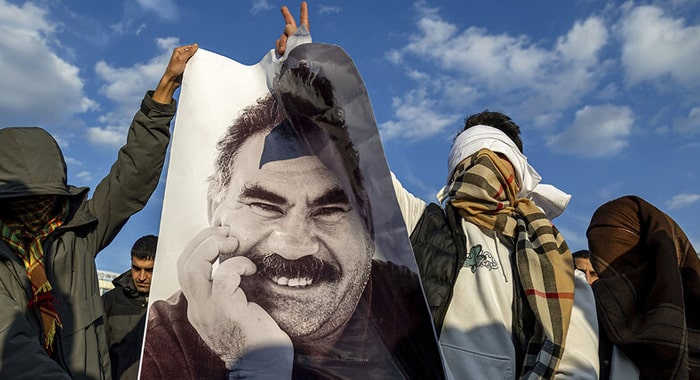The announcement by the Kurdistan Workers’ Party (PKK) to disarm and disband after more than four decades of armed struggle marks a historic inflection point in Türkiye’s battle against terrorism—and raises as many questions as it answers. While the Turkish government hails this development as a hard won success against terrorism, many remain sceptical of the motives behind the timing and ultimate sincerity of this strategic pivot.
In February, Abdullah Öcalan the jailed leader of the outlawed PKK called on the group to lay down arms and dissolve. This week, the PKK leadership followed through. While seemingly sudden, this decision was the result of converging factors: regional upheavals, waning external support for the Kurdish insurgency, and a surprising political endorsement from Devlet Bahçeli, leader of the far-right Nationalist Movement Party and a key ally of President Recep Tayyip Erdoğan. Bahçeli’s October appeal for disarmament, with hints at a possible parole for Öcalan, set the political groundwork. Öcalan echoed the sentiment, declaring the era of armed struggle over an unprecedented move now formally embraced by the PKK.
According to Alper Coşkun, a Carnegie fellow and former Turkish diplomat, the PKK’s decision has the potential to reshape Türkiye’s domestic trajectory, security doctrine, and foreign policy. The elimination of a key domestic terrorist threat could liberate Ankara’s policymaking from the heavy shadow of internal insurgency and allow it to pivot toward more constructive international engagement.
Yet, as Garo Paylan, a prominent Kurdish politician and another Carnegie fellow, warns, the road ahead is fraught with scepticism. Pro-government factions have quickly framed the PKK’s capitulation as a triumph of Ankara’s military and political pressure. Many Kurds, while cautiously hopeful, question whether this disarmament will be met with genuine political reform or simply exploited for regime survival. For secular opposition figures, the move raises alarms over possible constitutional manipulation, suspecting Erdoğan of using peace as a pretext to extend his presidential rule.
The PKK has long been Türkiye’s most enduring terrorist threat, its operations defining the country’s militarised domestic policy and its often tense international relations. Its cross-border presence in Iran, Iraq, and especially Syria—posed consistent regional dangers. Disbanding the group could remove a decades-long obstacle to Türkiye’s diplomatic evolution, enabling Ankara to reimagine its role in NATO, unlock stalled economic opportunities, and cultivate more positive regional momentum.
Indeed, the PKK issue has directly shaped Türkiye’s NATO posture. The group’s camouflage in democratic spaces and its international financing and recruitment mechanisms strained ties with key allies. The U.S. backed Syrian Democratic Forces (SDF), heavily influenced by PKK affiliates, further exacerbated tensions. Ankara’s objections to NATO expansion including Sweden and Finland’s bids—were rooted in the West’s perceived tolerance for groups tied to the PKK. With the group disarmed, this longstanding friction could finally begin to ease.
Still, as Coşkun notes, disarmament alone will not deliver peace unless it is accompanied by a renewed commitment to rule of law and democratic norms. A Türkiye unshackled from the fight against terror has an opportunity to rebuild its social contract and restore its global reputation—but only if its leaders seize the moment for genuine reconciliation.
That path is anything but guaranteed. Paylan underscores that without a clear political road map and trust-building measures, this historic announcement risks becoming a symbolic gesture. The Kurdish community seeks assurance: real reforms in political representation, cultural rights, and reintegration into civic life. Absent these, peace remains fragile.
Further complicating the picture is Syria. If negotiations between Syrian Kurds and Damascus collapse, it could destabilise the regional peace dynamic, undermining the PKK’s disarmament momentum. Moreover, Ankara’s recent authoritarian drift—justified for years under the guise of fighting terror—might not reverse automatically. The detention of Istanbul’s Mayor Ekrem İmamoğlu, Erdoğan’s main political rival, casts doubt on the government’s democratic intentions.
On the international stage, especially with the United States, the PKK’s demobilisation could foster more stable security cooperation. Washington has long faced criticism for its alliance with the SDF in Syria, which Ankara sees as a PKK proxy. But with the terror threat neutralized, and Syrian Kurds signaling openness to reconcile with both Ankara and Damascus, space opens for a U.S. exit strategy from Syria that does not reignite conflict. As Paylan notes, for the U.S., promoting a stable Turkish-Kurdish dynamic is now critical for maintaining pressure on ISIS and ensuring long-term regional stability.
Ultimately, this moment presents Türkiye with a crossroads: it can either embrace the end of the PKK insurgency as a gateway to democratic renewal, or it can instrumentalize it as another lever of authoritarian control. What is certain is that the disarmament of one of the world’s most persistent armed insurgencies is an extraordinary development. What remains uncertain is whether Türkiye’s political leadership will honor this shift with vision and responsibility or squander the chance to end one of the most tragic chapters in its modern history.





